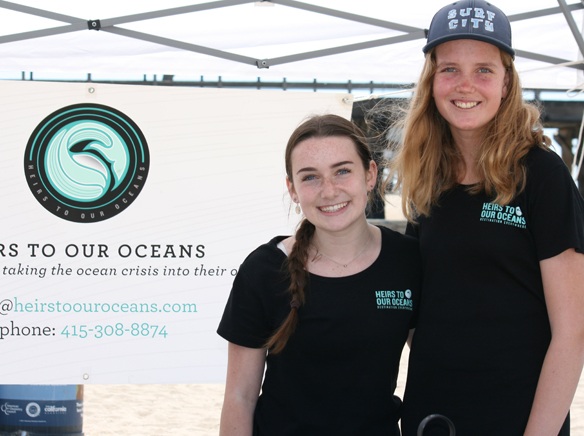
Music, entertainment, food and fun was the draw for the 12th Annual Ohana Day, hosted by the Huntington Beach/Seal Beach Chapter of the Surfrider Foundation.
However, while many people were enjoying music and Hawaiian style dances, groups were cleaning trash and debris from the ocean and giving visitors a look at what is being done to help preserve and restore the oceans of the world.
Whitney Redfield, Treasurer of the chapter, was helping out in a booth that showed how a home can become more ocean friendly by redesigning the landscape. Drought resistant landscapes have become the rage, but according to Redfield there are extra steps that can be taken to help the ocean.
When rain falls, an ocean friendly garden captures just a fraction of the first inch of rainfall and prevents it from reaching the ocean. However, within that small amount of water is the vast majority of the pollutants that are washed from roof tops. Certain kinds of paving stones, and mulch can also help the remainder of the water to be filtered and allowed to soak into the groundwater.

Another group, Heirs to Our Oceans, was particularly impressive as it was led by teenagers, who are working to help preserve oceans. The teens have written research papers (which are checked by scientists for accuracy) in which they explain concepts such as misconceptions in plastic marketing and which sunscreens are harmful to coral reefs.
Chloe McKenna, 16, wrote a paper about how companies tout small changes designed to make consumers think they are making an impact.
“Marketing tactics prey on the widely-known importance of preserving our environment and advertise to an audience of uninformed consumers who are easily misled – this is called greenwashing,” McKenna writes.
A paper written by Charley Peebler explains that sunscreen users should look for sunscreens that contain Zinc Oxide and Titanium Dioxide only. Often there are other additives such as Oxybenzone and Octisalate, which are harming the coral reefs, Peebler contends.
For more on those two organizations, visit surfrider.org and heirstoourocean.com.











